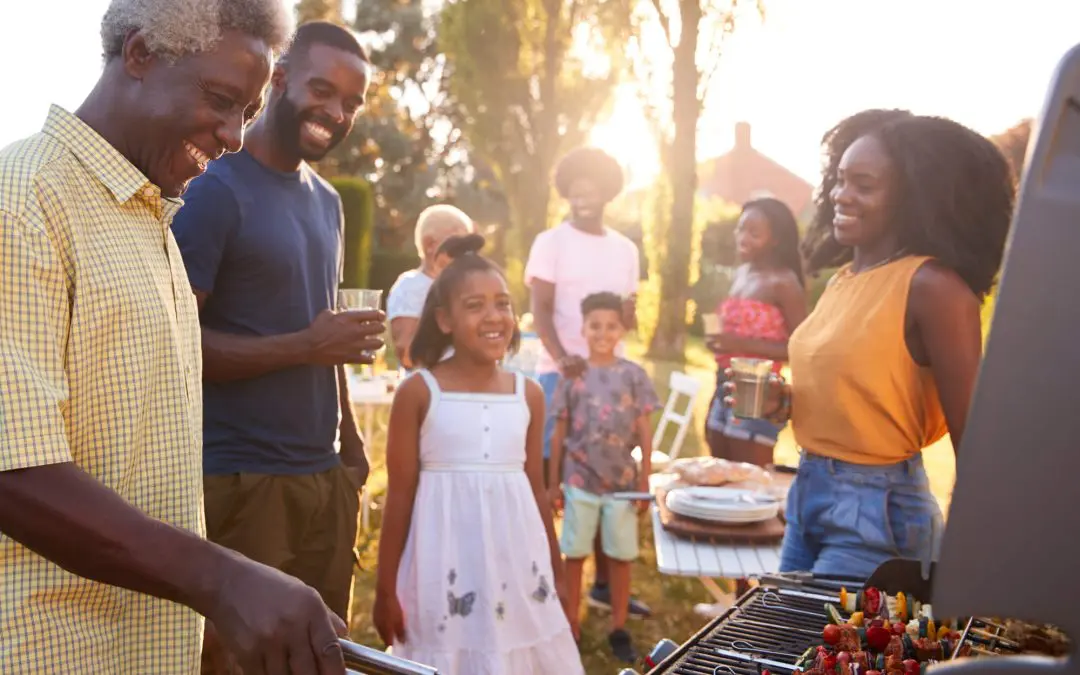There’s nothing quite like firing up the grill on a sunny day. Whether you’re searing steaks, flipping burgers, or slow-cooking ribs, a clean and well-maintained grill makes a big difference in flavor and safety. But before you throw on your apron and get those flames going, it’s worth taking a little time to prepare your grill for use.
It doesn’t take long to prep your grill, and doing it right means fewer flare-ups, better-tasting food, and a longer life for your equipment. Whether you’ve got a gas grill, a charcoal setup, or a smoker, these steps will help you kick off the season the right way.
Give It a Good Inspection
Start by thoroughly cleaning the grill. If it’s been sitting unused for a while—especially through the winter—there’s a good chance dust, debris, or even critters have taken up temporary residence.
Check for any rust, cracks, or damage to the body of the grill, especially the burners, grates, and hoses. If using a gas grill, pay extra attention to the fuel lines and connections. Look for cracks, leaks, or anything that seems loose or worn out. You can do a quick leak test by brushing soapy water on the hose and connections, then turning on the gas (without lighting it). If you see bubbles forming, you’ve got a leak that needs to be fixed.
Deep Clean the Grates and Interior
If your grates are caked in old grease or bits of last season’s cookouts, it’s time for a serious scrub. Remove the grates and soak them in warm, soapy water for about 20–30 minutes. After soaking, use a stiff wire brush or a grill scraper to remove any stubborn gunk.
While the grates are soaking, tackle the inside of the grill. Scoop out any old ashes if you’re using a charcoal grill, or clear away grease and debris from the burner area on a gas grill. A shop vac or handheld vacuum works great for this.
For gas grills, take a close look at the burner tubes. Use a toothpick or a small wire to clean out the burner holes (they can get clogged with grease or insects). Clogged burners can lead to uneven flames or no flame at all.
Clean the Exterior
Cleaning is most important when you prepare your grill for the season. Wipe down the exterior with warm, soapy water and a sponge or rag. If your grill is stainless steel, a gentle stainless cleaner or polish can bring back the shine and help protect against future rust.
Avoid using abrasive cleaners or steel wool on the outside, as they can scratch the finish. Stick to soft cloths or sponges and rinse everything thoroughly when you’re done.
Check the Fuel Supply While You Prepare Your Grill
Before you get excited and toss the steaks on, make sure you’ve got enough fuel to get through your first cookout. If you’re using propane, check the tank level. You can do this by pouring hot water down the side of the tank and feeling for a temperature change, or just picking up a simple gauge.
For charcoal grills, make sure your charcoal is fresh. Old charcoal that’s been sitting in a damp garage or shed might not light well, and it definitely won’t burn as hot or evenly.
If you use wood chips or chunks in a smoker, now’s a good time to stock up on your favorite flavors. Dry wood burns cleaner and adds better flavor than anything that’s been soaking up moisture for months.
Give It a Test Run
Before you invite the neighbors over, give your grill a quick test. Fire it up, let it run for 10–15 minutes, and make sure everything heats up evenly. Check for hot spots, uneven flames, or strange smells or noises.
It’s a lot easier to deal with any issues now than it is in the middle of cooking a full meal. Once everything looks good, you’re officially ready to start grilling.
FAQs on How to Prepare Your Grill for Use
How often should I clean my grill during the season?
Give your grates a quick brush after each use to keep buildup under control. A deeper clean once a month (or every 4–5 uses) is a good rule of thumb.
What’s the best way to prevent flare-ups?
Flare-ups usually come from grease buildup. Keep your grill clean, trim excess fat off meat, and avoid cooking too many fatty foods at once.
Can I use oven cleaner on my grill?
It’s best to avoid harsh chemical cleaners, especially on cooking surfaces. Stick with warm, soapy water and a grill brush. If you need something stronger, look for cleaners specifically made for grills.
How do I keep rust from forming on my grill?
Clean and oil the grates regularly, and keep your grill covered when not in use. Moisture is the enemy, so make sure everything is dry before putting on the cover.
Is it okay to leave the propane tank connected when not in use?
Yes, but turn the tank valve off. It’s also a good idea to check for leaks regularly and store the tank in a well-ventilated area.
Professional Inspection Network provides home inspections in Southern California. Contact us to schedule an appointment.

